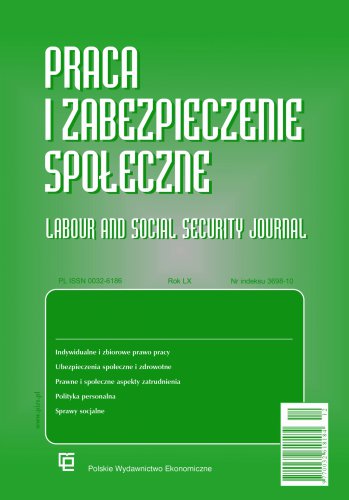Labour and Social Security Journal 12/2020
ISSN: 0032-6186
Pages: 64
Publication date: 2020
Place publication: Warszawa
Binding: paperback
Format: A4
Publication date: 2020
Place publication: Warszawa
Binding: paperback
Format: A4
DOI: 10.33226/0032-6186.2020.12.1
JEL: J53
DOI: 10.33226/0032-6186.2020.12.2
JEL: K31
DOI: 10.33226/0032-6186.2020.12.3
JEL: K31
DOI: 10.33226/0032-6186.2020.12.4
JEL: K31
DOI: 10.33226/0032-6186.2020.12.5
JEL: K31
DOI: 10.33226/0032-6186.2020.12.6
JEL: K31
DOI: 10.33226/0032-6186.2020.12.7
JEL: K31
DOI: 10.33226/0032-6186.2020.12.8
JEL: K31
DOI: 10.33226/0032-6186.2020.12.9
JEL: K31
DOI: 10.33226/0032-6186.2020.12.10
| Odbiór osobisty | 0 € |
| Kurier Inpost | 4 € |
| Kurier FedEX | 4 € |
| Inpost Paczkomaty | 4 € |
| Free delivery in Reader's Club | from 47 € |

